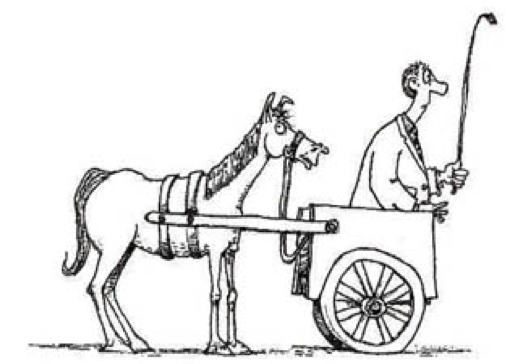In Which Megan McArdle and Arnold Kling Are Very Wrong Once Again

Megan McArdle:
Megan McArdle: It's common among programmers to say "Garbage In, Garbage Out": your result is only as good as your data. The same could be said of economic models, except the problem is not so much the data, as the incompleteness of the models. Arnold Kling recounts an interesting encounter:
At the unpleasant session yesterday, I did learn something interesting from Doyne Farmer of the Santa Fe Institute, while he was ranting against the state of the art in macroeconomic models. He said that in 2006, the Fed simulated a 20 percent decline in home prices in its model, and the effect was minor.
That sounds highly plausible, of course. But it just adds to my frustration about the infamous Blinder-Zandi black-box simulations purporting to show that the economy would have been much worse without TARP. Such an exercise assumes that we have precise quantitative knowledge of the feedback between real and financial variables. But the exercise that Farmer referred to illustrates just how weak an assumption that is...
It would have been an act of honesty on Kling's part to reveal that back in 2006--when Fed staffers thought that there was definitely a housing bubble and that they should try to forecast the causes of its collapse--he was writing things like:
Housing Bubble Revisited: There are two ways to look at house prices. 1. Relative to historical norms, prices are very hig.h 2. Relative to rents, prices are reasonable. Both statements are true. The first implies a bubble, and the second does not.
Historical norms are for prices to be low relative to rents. That might reflect a risk premium or a liquidity premium for owning a house. In my view, there are good reasons for a liquidity premium to have shrunk over time. The mortgage market has become more efficient, so that the cost of having money tied up in a house has fallen. This story suggests to me that the rise in prices from historical norms could be rational....
I would rate the probability of a bubble at about 20 percent...
And it would have been an act of honesty on Kling's and McArdle's part to reveal that the Federal Reserve staff was right: the collapse of the housing bubble had little effect on the economy. What caused the crash and our current near-depression was something very different from the collapse of the housing bubble--as you can see if you cast your mind back to August 2008 when it was clear how large the collapse of the housing bubble was and yet the consensus forecast was of the smallest post-WWII recession.
What caused our current crisis was the fact that banks that claimed to be running an originate-and-distribute MBS business were running an originate-and-retain business instead, and were extraordinarily exposed to housing price declines in a way that very, very few people understood in 2006.
This isn't rocket science, people. All you have to do is honestly report what you were thinking in mid-2006 and in the aftermath of the crash of the housing bubble in mid-2008. It wasn't that long ago.



J. Bradford DeLong's Blog
- J. Bradford DeLong's profile
- 90 followers



